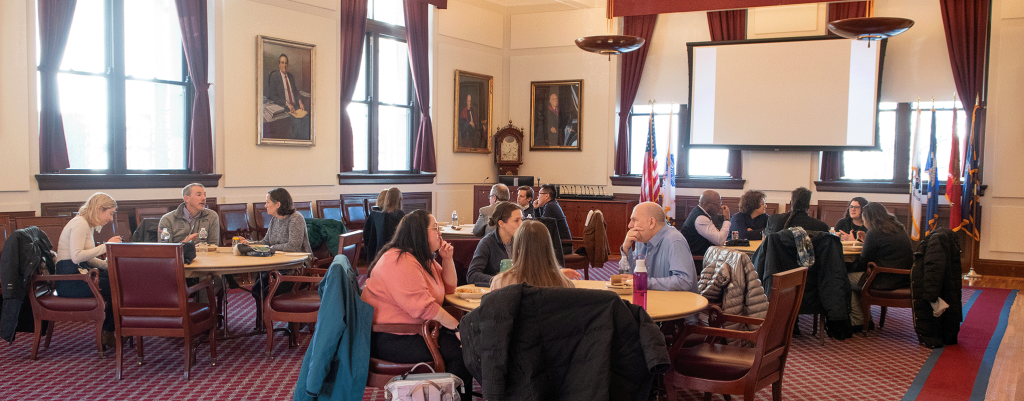The Fellowship in Bioethics at HMS
Applications Now Open - Apply Here
- Deadline to apply is March 1, 2026
The Fellowship in Bioethics at Harvard Medical School (HMS) is a one-year, part-time academic certificate program designed for those with a serious interest in bioethics and who wish to further their knowledge in the history, philosophical underpinnings, and contemporary practice of bioethics. Fellows are exposed to major ethical theories and modes of bioethical analysis, while addressing a wide variety of topics in research ethics, clinical ethics and public health ethics. Sessions are led by Fellowship Director and professor of global health and social medicine, Mildred Z. Solomon, EdD, and other distinguished faculty from across Harvard University and from other leading institutions.
Weekly meetings take place from mid-September through early May on Fridays from 9:30 a.m. to 12 p.m. ET. Fellows are required to meet in person in Boston for all Friday morning seminar meetings, a welcome event in September, and a two-day mid-year retreat that takes place in late January or early February. Fellows are also invited to participate in the many special events offered by The Center for Bioethics and have many networking opportunities to meet with alumni, staff and faculty.
About the Fellowship
The fellowship is specifically designed to enable working professionals to continue in their full-time jobs, although they often succeed in requesting that their workloads be lightened over the course of the academic year, so that they can participate fully in the many activities of the Center for Bioethics. Fellows can access all the resources of Harvard University, including auditing courses (with permission of the instructor), or engaging in research or other activities at Harvard or throughout the biomedical community in Boston.
Bioethics fellows explore their interests through weekly seminars on current and emerging bioethical issues, and through individual projects. A keystone of the experience is the strong community that fellows—who are a diverse group of professionals from medicine, nursing, law, social work, and other academic fields—build throughout the year. The program has welcomed fellows from across the globe with a variety of experiences and backgrounds, enabling participants to expand their perspectives, critique, challenge, and hold each other's thinking to the highest standards of rigor and creativity.
Program for Professionals
Working professionals generally continue in their full-time jobs, although they often succeed in requesting that their workloads be lightened over the course of the academic year, so that they can participate fully in the many activities of the Center for Bioethics. Fellows can access all the resources of Harvard University, including auditing courses (with permission of the instructor), or engaging in research or other activities at Harvard or throughout the biomedical community in Boston.
Fellowship Objectives
- To deepen one's moral imagination — i.e., the ability to discern, often submerged or unarticulated, ethical questions and to struggle respectfully with alternative views
- To develop familiarity with the major approaches to ethical analysis and justification, commonly used in bioethics
- To understand the basic values and concepts central to bioethics
- To understand the key topics bioethics has addressed to date, including the major questions being asked within each topic and the nature of the debate(s) relevant to each one
- To develop more refined skills at ethical analysis – both with regard to clinical cases and to issues of national policy
- To be able to pose new questions worthy of ethical analysis
- To recognize some of the conceptual limitations of the prevailing bioethical paradigm
- To integrate intellectual inquiry in bioethics with reflections on one’s personal experiences working in health care to enhance and sustain professional ideals and aspirations

